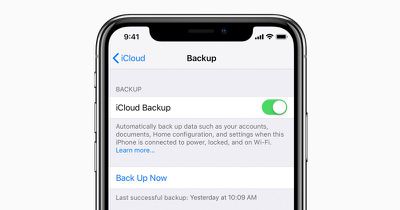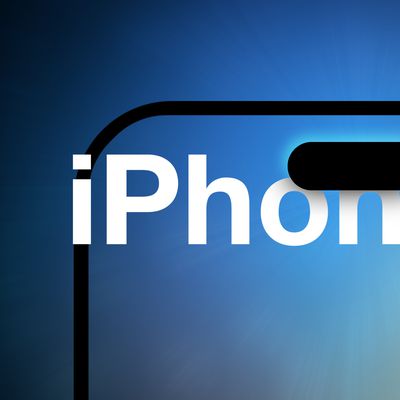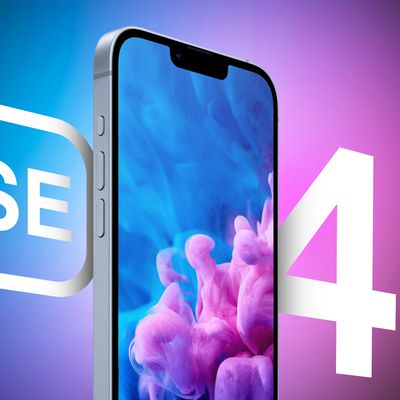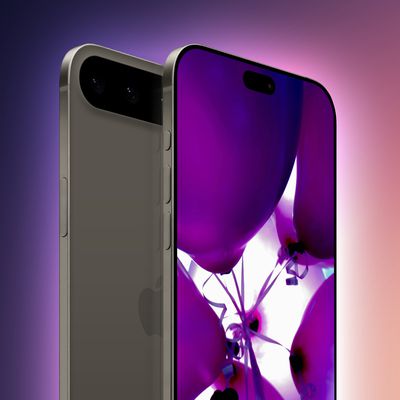Apple Reportedly Dropped Plans for End-to-End Encrypted iCloud Backups After FBI Objected
More than two years ago, Apple informed the FBI that it planned to roll out end-to-end encryption for iCloud backups, according to Reuters. Apple ultimately dropped the plan at some point after the FBI objected, although the report notes that it is unclear if the federal agency was a factor in the decision.

A former Apple employee told Reuters that the company did not want to risk scrutiny from public officials for potentially protecting criminals, being sued for making previously accessible data out of reach of government agencies, or the move encouraging new legislation against encryption.
"They decided they weren't going to poke the bear anymore," the person said, after Apple's legal battle with the FBI in 2016 over unlocking an iPhone used by a shooter in the San Bernardino, California attack. In that case, the FBI ultimately found an alternative method of unlocking the iPhone.
Apple faces a similar standoff with the FBI over refusing to unlock two passcode-protected iPhones that investigators believe were owned by Mohammed Saeed Alshamrani, the suspect of a mass shooting at a Naval Air Station in Florida last month. Apple said it has provided the FBI with all data in its possession.
Apple has taken a hard line on refusing to create a backdoor into iOS that would allow the FBI to unlock password-protected iPhones to assist in their investigations, but it does provide data backed up to iCloud to authorities when lawfully requested, as outlined in its semiannual Transparency Reports.
Note: Due to the political nature of the discussion regarding this topic, the discussion thread is located in our Political News forum. All forum members and site visitors are welcome to read and follow the thread, but posting is limited to forum members with at least 100 posts.
Popular Stories
Following nearly two years of rumors about a fourth-generation iPhone SE, The Information today reported that Apple suppliers are finally planning to begin ramping up mass production of the device in October of this year. If accurate, that timeframe would mean that the next iPhone SE would not be announced alongside the iPhone 16 series in September, as expected. Instead, the report...
Key details about the overall specifications of the iPhone 17 lineup have been shared by the leaker known as "Ice Universe," clarifying several important aspects of next year's devices. Reports in recent months have converged in agreement that Apple will discontinue the "Plus" iPhone model in 2025 while introducing an all-new iPhone 17 "Slim" model as an even more high-end option sitting...
Apple supply chain analyst Ming-Chi Kuo today shared alleged specifications for a new ultra-thin iPhone 17 model rumored to launch next year. Kuo expects the device to be equipped with a 6.6-inch display with a current-size Dynamic Island, a standard A19 chip rather than an A19 Pro chip, a single rear camera, and an Apple-designed 5G chip. He also expects the device to have a...
The upcoming iPhone 16 models that we're expecting to see in September are going to be quite similar to the iPhone 15 models, but rumors suggest that Apple is making big changes in 2025. We've been hearing hints of an all-new device in the iPhone lineup, and it may be the most expensive iPhone Apple has offered to date. Subscribe to the MacRumors YouTube channel for more videos. New 'Slim'...
Apple typically releases its new iPhone series around mid-September, which means we are about two months out from the launch of the iPhone 16. Like the iPhone 15 series, this year's lineup is expected to stick with four models – iPhone 16, iPhone 16 Plus, iPhone 16 Pro, and iPhone 16 Pro Max – although there are plenty of design differences and new features to take into account. To bring ...
Apple released the fourth beta of iOS 18 today, introducing small changes to a number of features throughout the operating system. There are no big additions in this beta, but Apple is continuing to refine existing settings and design choices. Apple plans to continue updating iOS 18 over the next few months, with the update set to be released this fall. We've rounded up all of the changes...
The fourth-generation iPhone SE will offer a series of major upgrades over the current model, the leaker known as "Ice Universe" claims. The information was listed in a post on Weibo, which also detailed the specifications of the iPhone 17 lineup. As previously rumored, the fourth-generation iPhone SE is expected to feature Face ID and USB-C, marking a major upgrade from current and previous ...
Apple is planning to release at least one iPhone 17 model next year with mechanical aperture, according to a report published today by The Information. The mechanical system would allow users to adjust the size of the iPhone 17's aperture, which refers to the opening of the camera lens through which light enters. All existing iPhone camera lenses have fixed apertures, but some Android...























